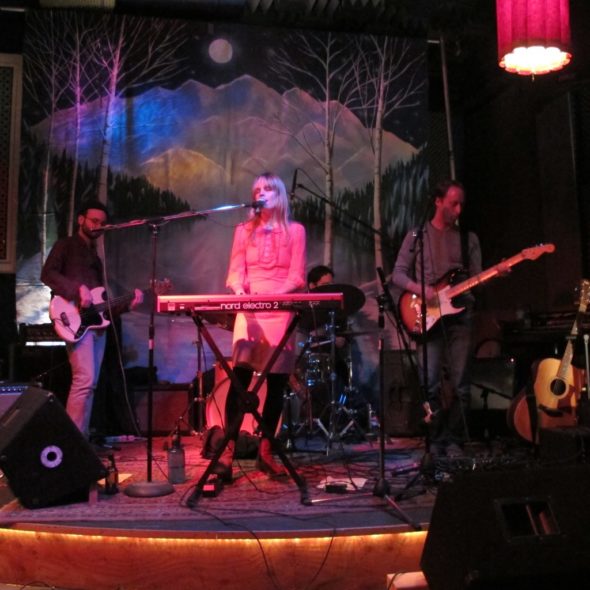Clayton Purdom is the Editor of Kill Screen, a video games, arts and culture company based in Brooklyn, NY. Kill Screen publishes an eponymous website and magazine that seek to explore the intersection of play, technology, and art. Both the magazine and website have been highly praised for their sophisticated writing, far-reaching content, and elegant layout. My colleague Lindee and I reached out to Clayton to find out more about this very cool company.

Sasha: How did you come to work for Kill Screen?
Clayton: I started out as a freelancer. I had an idea for an article that I knew was a great fit for the site and pitched it. I did a couple of reviews after that and then saw they were looking for an editor. I threw my name in the hat and Jamin [Warren, Kill Screen Founder] and I bonded over a shared love of Cam’ron.
Lindee: Why is it important to have a print edition of Kill Screen?
Clayton: There’s a real hunger out there for not just reporting but curation in the world of video games, particularly small, creator-driven ones. We provide that every day on the site but print offers us an opportunity to do so with greater resources and focus. We’ve been super happy with its success and have some really exciting stuff planned for it.
Sasha: Yes, last week you launched a new Kickstarter campaign with the intent of making the magazine “bigger, bolder, and better looking than ever before.” What prompted the reinvention?
Clayton: Kill Screen has grown a lot since it launched five years ago and it was time to update the print format to match where we (and games) are today. People seem to be responding, so far!
Sasha: That’s great! It looks like the campaign is off to a very successful start. How do you select games to review?
Clayton: We look for ones that seem to be trying to do something interesting or new, so that even if they’re not necessarily “good” there’s still value in parsing them. More literally, we just get boatloads of them sent to us and I hand them out to writers to take a look at. If they’re good or at least interesting, we do a review.
Lindee: Do you make a deliberate effort to give attention to lesser-known titles?
Clayton: I think we do end up doing that, but it’s not out of a sense of advocacy for them, but just because we find them interesting. There are so many games out there it’s crazy, and the vast majority of them are terrible. We’re just letting our taste sort through them.
Sasha: What led to your decision to add scores to game reviews?
Clayton: Two years ago I reinstated scores on the reviews for a bunch of reasons. In general, I think an arts publication needs a firm critical arm. You sort of have to put your money where your mouth is, taste-wise.
Sasha: What role do you think video games play in addressing social issues?
Clayton: It’s always great when art of any type is socially responsible, but it’s by no means a factor in my personal enjoyment of it. Star Wars fails the Bechdel test, but, I mean, I like Star Wars. Which is to say that social issues-oriented games are fine by me but their first challenge is aesthetic, not moral. Art can change culture but it’s not art’s responsibility to do so.
Lindee: What three pieces of advice would you like to give to every game developer?
Clayton: Well, I would never do such a thing, because I don’t know anything about game development! If I designed a game it would be some terrible RPG [role-playing game] or something, and no one would ever want to play it. I guess, speaking broadly, I’d always encourage developers to look first and foremost outside of games for inspiration. Great things happen when they do. My other two pieces of advice would be to stay hydrated and buy a cat, just because that’s my advice to everyone ever.
Sasha: What major changes do you anticipate in the world of gaming over the next 5 years?
Clayton: The virtual reality thing is definitely happening in some capacity – whether or not everyone ends up with a headset in their home or something else. It may all be a glorious train wreck but that train’s moving, is my point. The other thing I see is a much wider diversification in the size and type of games. Mid-tier games, i.e. those made from traditional studios but without the enormous budget of something like Call of Duty, will make a comeback, and many studios we currently consider “indie” will grow and start to look a lot like the mid-tier, as well. Small, personal games from individuals and small teams will still be made, as will enormous blockbuster games, but that middle ground will fill out. It’ll be awesome.
Sasha: Many of your staff, including you, have written music reviews for Pitchfork. Being the music fan you are, what game soundtracks have you been most impressed by?
Clayton: Everybody’s Gone to the Rapture, released earlier this year, is an absolute masterpiece for this very reason. Anything David Kanaga works on is brilliant, particularly this year’s Panoramical. The best soundtracks ever are Sonic 3 and Silent Hill 2.
Sasha: If Hillary Clinton were looking for a game to play between campaign stops, what would you recommend to her and why?
Clayton: My gut reaction is Monument Valley, because it’s beautiful and bite-sized and I recommend that everyone play it. But I guess Frank Underwood did that on the last season of House of Cards, so it’s maybe too obvious a pick. So instead I’ll recommend Bloodborne to Hillary Clinton. I don’t know if she’s into killing piles of snakes with a battle-axe and a shotgun, but if she is she’ll love it.

BIO: Sasha Bell is part of Submittable’s Client Success team. She has a BA in Anthropology from Yale University. When not playing with her bands, Essex Green and The Sasha Bell Band, you can find her driving around Montana gawking at her majestic home state.
BIO: Lindee Keller is a developer intern at Submittable. She enjoys playing video games, along with writing speculative fiction, listening to live music, training her cat to do tricks, and, of course, coding.